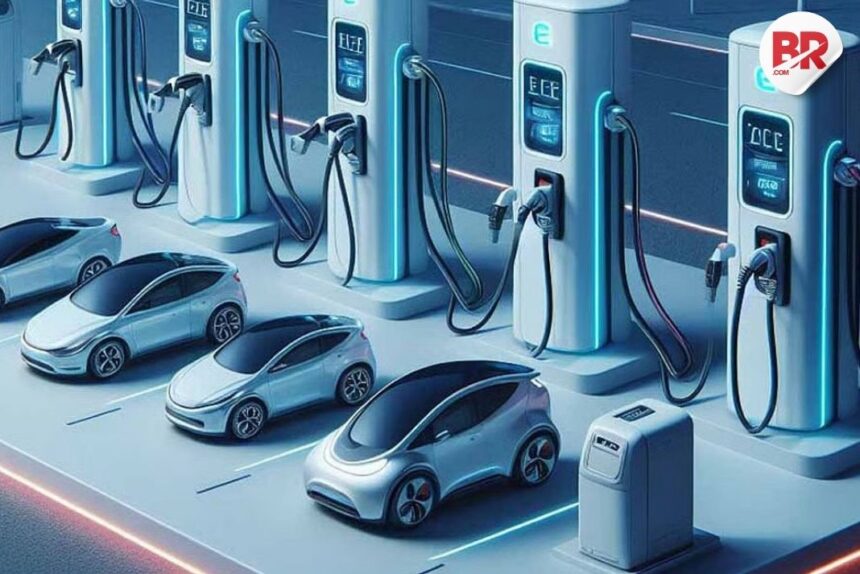
India’s electric car market is growing fast and could make up over 7% of total car sales by the financial year 2027-28 (FY28), according to a report by CareEdge Advisory. However, this depends on solving problems in the supply of rare earth elements (REEs)—key materials used in EV batteries and motors.
The report highlights several reasons behind this expected rise:

- More electric car models are being launched.
- Charging stations are increasing rapidly.
- Battery production is becoming more local under the government’s PLI (Production Linked Incentive) scheme.
What Experts Say
Tanvi Shah, Senior Director at CareEdge, said that India is in a strong position to adopt more electric vehicles (EVs) due to government policies and industry investments. But this growth is possible only if the rare earth supply issue is handled properly.
Read more: Tesla Model Y vs BMW iX1 LWB: Who’s the EV King?
Fast Growth in Recent Years
- In FY21, India sold just over 5,000 electric cars.
- By FY25, this number crossed 1.07 lakh (107,000).
- While two- and three-wheelers still lead in overall EV sales, electric four-wheelers are catching up quickly.
Charging Infrastructure Improving
- In 2022, India had around 5,151 public EV charging stations.
- By early FY25, this number jumped to over 26,000 stations, showing strong progress.
More Support Coming
- The government may soon launch FAME III to support EV growth.
- There are also tax exemptions on key minerals like cobalt and lithium.
- These efforts will help lower EV costs and boost domestic battery production.
If India can manage the rare earth supply chain and continues building infrastructure, the country is set to make electric vehicles a major part of its future.
Also See: Kia Carens Clavis EV Launched in India at ₹17.99 Lakh with 490km Range; Full Details Inside












